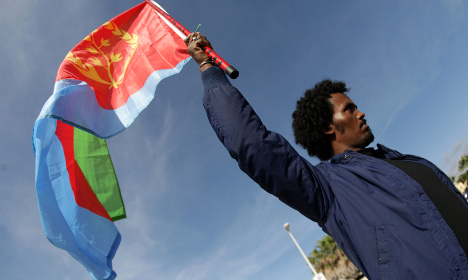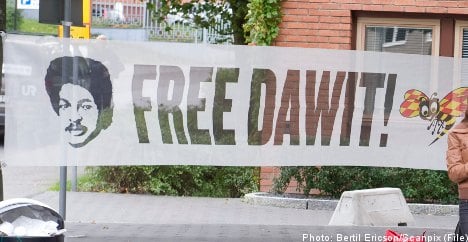Lapo Pistelli held talks with Osman Saleh, Eritrea’s foreign minister, before meeting with President Isaias Afewerki and his advisor, the Italian foreign ministry said in a statement.
Pistelli said the visit aimed at fostering greater cooperation between the two countries, “given that many of the security and migration problems that affect Italy actually originate in this part of the region.”
While Eritreans do not make up the largest group of immigrants to Italy, greater attention has been placed on the country in recent months due to a sharp uptick in the number of boat migrants to Italy from the Horn of Africa.
The majority of the 366 people who died in a shipwreck in October off the Italian coast were fleeing Eritrea, a country where “human rights conditions remain dismal” according to Human Rights Watch.
SEE ALSO: Eritrean refugees rally in Rome after tragedy
Many more Eritreans continue to cross the Mediterranean by boat, along with others from Syria, Somalia and elsewhere. At least 40 people have died attempting the dangerous sea journey to Italy over the past week, with 75 more reported missing yesterday.
Speaking about his visit to the Eritrean capital, Asmara, Pistelli said he wanted to “try to foster Eritrea’s full reinstatement as a responsible actor and key member of the international community in the stabilization of this region”.
The deputy minister’s visit showed a “new willingness to engage”, he said, which had the potential to “rekindle the mutual trust” between Eritrea and Italy that has been absent for “too many decades”.
The last visit to Eritrea by a member of the Italian government was in 1997, when the then president Oscar Luigi Scalfaro travelled to the country.



 Please whitelist us to continue reading.
Please whitelist us to continue reading.
Member comments